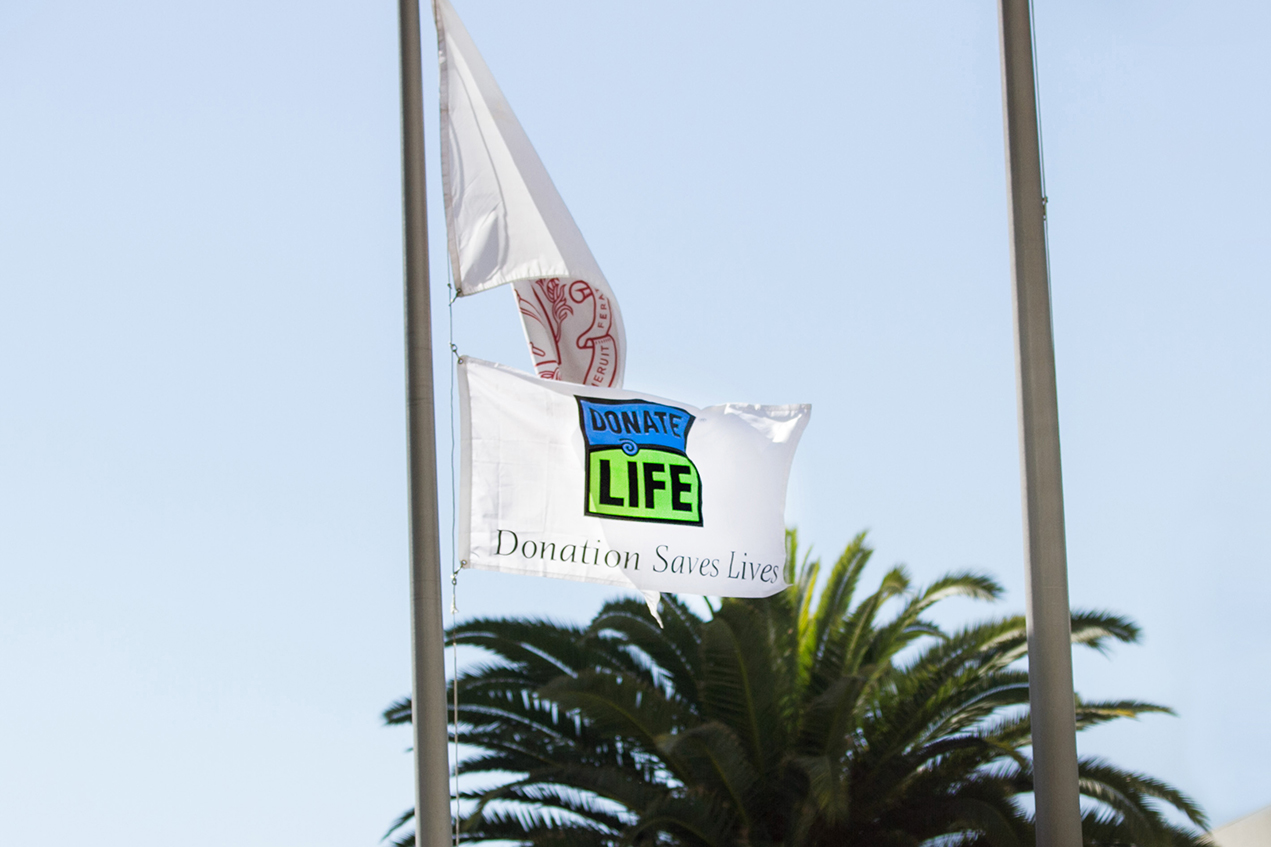On April 22nd, the staff members of the USC Transplant Institute raised the Donate Life Flag in honor of Donate Life month and all the organ donors who have given the gift of life to patients in need.
The Transplant Institute raises the flag annually in April and also raises it for one week each time a patient makes a living donation. Last year, the Transplant Institute performed more than 25 adult-to-adult living-donor liver transplants, and 39 living-donor kidney transplants. The Transplant Institute is on track to exceed those numbers this year; in 2022 they have already performed 13 living-donor liver transplants and 16 living-donor kidney transplants.
“We do this for all of our donors, but in particular, I’m proud to honor our living donors,” said Helen Hyosun Han, MD, an assistant professor of clinical medicine and medical director of the Living Donor Program. “Living donation procedures are generally safe, but no surgery is completely without risk. We want to honor the fact that our donors are coming forward to save a life.”
Most living donors come forward to help a friend or a family member, but some come from social media campaigns to find a donor and some have simply heard about the program and want to help. “Often they are already blood donors,” explained Han. “They find out about the program and realize that they can help someone by donating a kidney or a piece of their liver.”
Southern California suffers from one of the largest organ shortages in the country. That means that patients who wait for an organ from a deceased donor tend to wait longer than in other parts of the country. They are likely to be at a more advanced state of illness when they go in for surgery, increasing their risk of dying before they receive an organ or getting so sick that they are unable to have the surgery. Finding a living donor allows them to get off the wait list and get their transplant while they are healthier and better able to handle the stress of a surgical procedure.
Han says that the biggest barrier to living donation in Southern California is simply getting the word out. “It’s terrifying to be sick and waiting for an organ,” said Han. “Most people — sometimes even referring physicians — don’t know that living-donor liver transplant is an option. There is a lack of education about this very good option for liver transplantation.”
The Transplant Institute staff hopes that events like the flag raising will increase awareness about organ donation, and eventually awareness about help for organ donors. For example, there are financial assistance programs available to help donors with costs associated with transportation and missed work, and in 2021 Keck Medicine launched a program to help potential donors get healthy enough to donate called the Living Donor Wellness Program.
“Our donors are not here on their own,” said Han. “We’re here to support them.”
— Lex Davis


